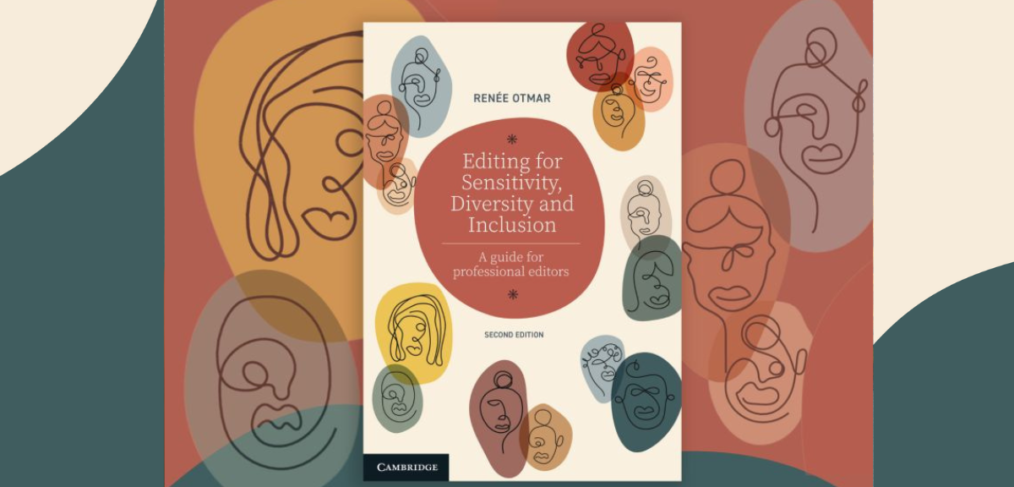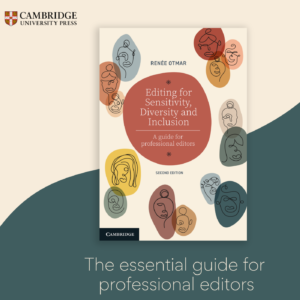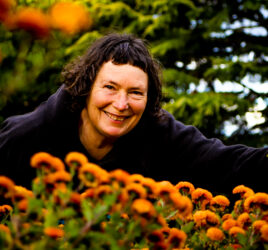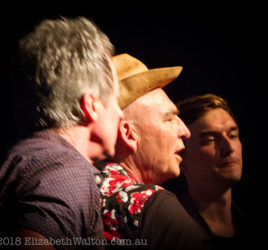
WordRoom podcast – Editing for Sensitivity, Diversity and Inclusion – Dr Renée Otmar – Australian writers on writing
A guide for editors and writers on editing for sensitivity, diversity and inclusion
Editing for Sensitivity, Diversity and Inclusion: A Guide for Professional Editors, by Dr Renée Otmar published by Cambridge University Press.
Podcast Notes:

When Dr Renée Otmar could not find the editing resources she needed to support her work, she turned to the manuscript-editing notes she keeps on her desk. For years she had developed these notes, frequently referring back to them as she edited the manuscripts of her clients. It soon became clear that the framework for the resource she was looking for was right there on her desk. After sharing her notes with many editors over the years, she began to realise there was only one way to get the resource she needed: she would have to write it herself. The result was the first edition of Editing for Sensitivity, Diversity and Inclusion: A Guide for Professional Editors.
For the second edition, the work was expanded in close consultation with the publishers, taking into account the feedback of nine independent reviewers from across the publishing industry, which included suggestions on decolonisation. The result is a robust book that serves as a thorough guide on how to respond to marginalised and minoritised perspectives and voices.
The book supports emerging and experienced editors working in fiction and non-fiction.
“This guide,” Renee says, “is meant as a companion for the professional editor who is keen to cultivate a practice that is sensitive to the needs of diverse communities, groups and individuals. It gives an overview of the fundamental ideologies and thought processes that underpin our decision-making in the editing (and writing) process, and how editors frame their advice to authors and publishing clients. And then it offers prompts and provocations to guide editors in offering alternative perspectives that are knowledgeable and clear-headed as well as compassionate.”
No single writer can be across all perspectives. Renee drew on her editorial experience, and then incorporated her skill as a researcher in scientific, health and other communities. She conducted rigorous research to find evidence for definitions and explanations of cultural slurs, ageism and appearance; belief systems and class, racism, gender identity, trauma and abuse, and more.

Placing topics on the page for others to read is not the end of Renee’s practice. In both our podcast interview and in person, she steps out ways to respond to the things we cannot see in each other’s experiences. In February, we met in Geelong to prepare for this interview. During our conversation, Renée paused many times before selecting her choice of language. She did not make assumptions. I came away from the meeting feeling I had participated in a masterclass on welcoming diversity and inclusivity.
In this interview, Renée explains why she does not like the term “trigger” warning and why she feels there is a better way to highlight difficult content. We also discuss whose responsibility it is to consider diversity and how soon this should occur in the writing process.
As storytellers, all writers have the potential to give voice to a broader spread of ideas and lived experiences. Inclusive storytelling is just the starting point in building more robust, diverse communities.
Renée is currently producing a guide for authors of trauma narratives, to be titled Cultivating A Trauma-Sensitive Approach to Writing Practice, and a companion volume for editors, which she hopes to publish in mid-2024.
Editing for Sensitivity, Diversity and Inclusion: A guide for professional editors is available in print and electronic formats




